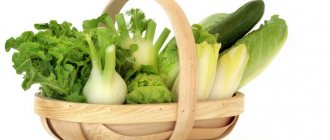Rose hip decoction
Good afternoon, dear readers! Rosehip or wild rose is simply a storehouse of vitamins to maintain the body, especially in the autumn-winter period. Its medicinal properties are recognized not only by traditional medicine, but also by official medicine.
Almost the entire bush is considered medicinal - the branches, roots, leaves, and of course, the fruits. The berries can be picked in September-October, when they are fully ripe.
Then dry it, and in winter you can prepare a very healing decoction to boost immunity. You can prepare the fruits yourself, buy them at a pharmacy or in a store in the dried fruits section.
I recommend reading:
Rosehip: composition, application, medicinal and beneficial properties and harm
Rosehip decoction: benefits
A drink made from rose hips tones, invigorates and supports even a very weakened body. Actively used for prevention, treatment and restoration of strength.
1. To restore liver function in case of cholecystitis and after removal of the gallbladder.
2. Stimulates the functioning of the entire gastrointestinal tract.
3. Normalizes blood pressure and heart muscle function.
4. Increases hemoglobin levels, promotes the dissolution of atherosclerotic plaques on the walls of blood vessels.
5. Helps reduce salt deposits and pain during gout.
6. In diabetes mellitus, it normalizes the production of insulin by the pancreas.
7. A good prophylactic for vitamin deficiencies and maintaining immunity.
8. A good prophylactic for fighting colds and antifungal infections.
9. Activates physical and mental activity.
10. Reduces the level of “bad” cholesterol, cleanses the body of waste and toxins, and helps reduce weight.
Rosehip decoction during pregnancy
The use of rosehip infusion for diseases
Medicine has long recognized the beneficial properties of rose hips. It is recommended to use its infusion for a fairly wide range of diseases.
Flu, acute respiratory viral infection, acute respiratory infection
When suffering from respiratory diseases, rosehip infusion not only facilitates the removal of mucus, but also strengthens the immune system. This effect on the human body is possible due to the large amount of vitamin C it contains. A complex of vitamins A, B, E, and K also helps fight viruses.
It is low in sugar, which makes it indispensable for diabetics and healthy eaters.
During a cold, this decoction will help:
- 3 tbsp. l. rose hips, ½ tbsp. l. marshmallow herbs. Pour 1 tbsp. water.
- Bring to a boil and simmer over low heat for 2 minutes.
- Remove from heat and let cool.
- Drink the product warm throughout the day.
To reduce the temperature you need to brew the following recipe:
- Take ½ tbsp. mixtures of rose hips and raspberries.
- Pour 2 tbsp. boiling water and leave for 15 minutes. Strain and add honey.
- You can add 1 tbsp. l. lemon juice.
- Drink 3 times a day, ½ glass.
To prevent viral diseases, you can prepare rosehip infusion in a thermos and drink it as tea throughout the autumn-winter period.
Anemia
Anemia develops for various reasons. This can be either a simple lack of microelements in food or illness. In the absence of contraindications, rosehip infusion can help raise the level of hemoglobin in the blood. This happens due to the content of iron and vitamin C in rose fruits.
Making rosehip infusion to increase hemoglobin is simple. You need to pour 30 washed berries into 1 liter. boiling water and leave in a thermos. Drink 1 tbsp. per day, first diluted with water. Treatment lasts 2 months. Before starting a course of treatment, you must consult a doctor and get tested.
Diseases of the cardiovascular system
The composition of rose hips not only protects the heart and blood vessels from free radicals, but also makes their walls strong and elastic. In addition to other vitamins and microelements, it contains natural statins that remove cholesterol from the body.
It is because of these properties of wild rose that infusions from its fruits are used to treat diseases such as:
- angina pectoris;
- hypertension;
- changes in blood supply to the brain;
- ischemia;
- atherosclerosis.
High and low blood pressure
Wild rose can both raise and lower blood pressure. It all depends on the method of preparing the drink and its intake. So, with high blood pressure, you can only take water infusions. To lower blood pressure, just make tea with rose hips.
This tea can be brewed as a simple infusion. If dry berries are used, it is better to infuse the drink in a thermos. It is enough to brew fresh fruits in a glass container for 2 hours. You need to drink 3 times a day, 100 ml, an hour after meals.
To prepare the drink, take 2 tbsp. l. fruits and pour 1 tbsp. water. You can enhance the effect of rose hips by pouring 2 tbsp of ready-made hot drink. l. hawthorn berries.
Leave to infuse for 30 minutes. and strain. This infusion is taken within 30 minutes. before sleep.
But for hypotension, it is better to use alcohol infusions of rose hips. You can buy this infusion at a pharmacy or prepare it yourself.
To prepare an alcoholic infusion, take 100 g of crushed dried berries and fill it with 1 bottle of vodka. You need to infuse in a dark glass container.
Infusion time: 1 week in a dark place. Take the infusion 25 drops before meals.
Pancreatitis and gastrointestinal diseases
Rosehip drinks strengthen and tone the gastrointestinal tract. In addition, they have an anti-inflammatory effect. There are many recipes designed for different stages of pancreatitis. To alleviate the condition during an exacerbation, the following recipe is used:
Take 20 dried berries for 1 liter of boiling water, put on low heat and cook for 1 hour. Remove from heat and leave for an hour. Take 50 g of the decoction 3 times a day, after diluting it with boiled water in a 1:1 ratio.
For stomach diseases, this infusion will help:
- 30-50 g fruits, 10 g mint, 10 g blackberries, 10 g lemon balm.
- Pour the mixture into a glass of water.
- Bring to a boil, boil for 2-3 minutes and cool slightly.
- Use the infusion hot.
Diseases of the gallbladder and bladder, pain in the liver, kidneys
Infusions and decoctions of wild rose cleanse the blood, helping with liver function, helping to restore damaged cells and relieve inflammation. Rosehip is also able to dissolve stones in the gall bladder and kidneys, which promotes their removal.
To cleanse the kidneys of stones, make an infusion of 2 tbsp. l. fruits and 1 tbsp. boiling water The berries are boiled for 15 minutes and allowed to cool. Strain and take 1/3 cup 3 times a day. The course of treatment is 2 weeks. However, you should not drink rosehip infusions and decoctions for a long time. This can lead to disruption of the liver and pancreas.
Decreased immunity
Rose hips are useful for immunity due to their vitamins. After all, it contains 50 times more vitamin C than lemon. To improve immunity, it is enough to drink rosehip tea, infused in a thermos, 2 times a day, 100 ml. To enhance the effect, honey is added to tea.
You can prepare a drink to stimulate the immune system from either dried or fresh berries.
Rosehip decoction during pregnancy and breastfeeding
1. During this important period for a woman, her body especially needs vitamins and additional support for immunity. It is during this period, when taking chemical drugs is highly undesirable, that rosehip decoction can help as a prophylactic and for the treatment of colds.
2. The drink helps relieve swelling in late pregnancy. If a woman has no contraindications and her attending physician allows it, then she can drink the decoction according to the following regimen: take it for a week, then take a week off.
3. The drink helps restore strength after childbirth, strengthens the body, fills it with vitamins, and gives vigor and strength.
4. If the child does not have allergies, then rosehip can be taken while breastfeeding. It is better to start taking 1 teaspoon per day and gradually increase the amount and monitor the baby’s reaction.
5. Any warm drink enhances milk lactation, and rosehip decoction will also fill it with vitamins and protect against mastitis.
6. Rosehip tea has a mild laxative effect, which is very useful for both women and small children.
Healthy recipes
1. Vitamin tea made from rose hips and dried fruits
You need: 10-15 dry rose hips and a large handful of any dried fruits, pour 1.5 liters of water, bring to a boil, add 3-4 tbsp. spoons of natural honey. Cover the pan with a lid and let the drink brew.
2. Rosehip syrup during pregnancy
You need to: pour 20-25 fruits with 0.5 liters of water and add a glass of white sugar. Bring to a boil, let it brew, filter and refrigerate.
Rosehip decoction for children
Cooking methods
Rose hips have been used by humans for food since ancient times. The fruits are used to prepare vitamin drinks, juices, jelly, compotes, fruit drinks, decoctions and teas. They make jam, marmalade and jams, marshmallows and sweets, make candied fruits, and use them in pies, biscuits and cookies. Many national cuisines have first courses based on rosehip decoction - okroshka and cold soups. It is used in the preparation of sweet and sour sauces for pork, duck and chicken dishes. Used as an additive to oatmeal and ice cream, combined with apples, pears, peaches, lemons, almonds, lingonberries, rowan berries and currants. The best spices are ginger, cinnamon and vanilla.
They are infused with alcoholic liqueurs, wines, cognacs and liqueurs. Pink jam is made from rosehip flower petals.
Rosehip decoction for children
It is recommended to introduce rosehip decoction into the child’s diet with 1 teaspoon per day, take a short break for 1-2 days and look at the baby’s body’s reaction; if an allergic reaction is not observed, then you can gradually increase the dose.
But, if a rash suddenly appears or problems with the gastrointestinal tract arise, then immediately stop taking the drink.
You can try introducing rosehip decoction into your child’s diet no earlier than 8 months. The recommended daily intake for children is no more than 100 ml. for 2-3 doses per day. Since the decoction has a slight diuretic effect, it is better not to give it to the child before bedtime.
Rosehip decoction and blood pressure
A decoction of the fruit is simply a storehouse of vitamins that have a positive effect on blood vessels and normalize blood pressure. But you need to know how to take it correctly so as not to harm your health.
1. A decoction of rose hips in water lowers blood pressure.
2. Rosehip tincture with the addition of alcohol or vodka helps to increase blood pressure, especially with hypotension.
To get a lasting result, you need to take the tincture or decoction for 2-3 weeks, ¼ cup a day before meals, then take a short break and you can continue taking it. The main thing is not to confuse which cooking method is right for you.
Medicinal recipes from rose hips to strengthen blood vessels
1. You need to: take equal quantities of rose hips, cranberries, hawthorns, and chokeberries. 3 tbsp. pour 250 ml of mixture of the listed berries into spoons. boiling water Let it brew for about an hour, filter and take ½ cup an hour before meals.
2. Need to: take 5 pcs. rose hips, mint or lemon balm leaves, 2 pcs. prunes and a little lemon zest. Pour hot water, let it brew for 30 minutes and you can drink medicinal and delicious tea.
How to brew rosehip root
Just like fruits, rosehip roots have medicinal properties. The root helps eliminate inflammation and normalize metabolic processes. To prepare a drink from the roots, you can take both fresh and dried roots. They need to be crushed and take 35 g. Heat 400 ml of water to 80C. Pour hot water over the roots and place in a water bath .
Simmer over low heat for 15 minutes. Remove from heat and wrap the prepared infusion. Leave for at least 5 hours.
How to prepare rosehip decoction correctly?
Fresh rose hips must be dried in the oven over low heat with the door open. Before cooking, rinse the berries, chop them or pierce them with a needle.
Before drinking, filter the finished medicinal drink to remove seeds and needles that spill out of the fruit.
Rosehip is poured with boiling water and left for several hours. You can brew berries in a thermos. It is not recommended to boil the broth in a saucepan over a fire for a long time, as this will destroy all the beneficial components and vitamins.
Basic Rules:
1. The norm for brewing is 10 rose hips per 250 ml. hot water.
2. The water temperature is no higher than 80 degrees, until the first bubbles appear, then the heating of the water must be stopped.
3. Infuse the decoction for at least 8 hours. You can pour the fruits in the evening, and you can consume them in the morning.
4. The main thing is that the medicine is prepared from high-quality raw materials.
5. The shelf life of dry rose hips is no more than 2 years.
I recommend reading all the cooking methods:
How to brew rose hips correctly to preserve all the vitamins
How to use rose hips?
When harvesting yourself, you must initially discard all diseased fruits. Under no circumstances should they be washed. You can dry either whole berries or cut in half. This should be done in an oven preheated to 60 degrees for 9 – 10 hours. The door must remain open to allow moisture to escape. You can’t leave it in the sun, as all the beneficial substances will be destroyed. If everything is done correctly, it will be elastic when squeezed, but if a mistake was made during drying, it, alas, will begin to crumble.
When the process is complete, the sepals are removed and the fruit is placed in a wooden box or cardboard box. After three days, they are transferred to tin or glass jars without lids. Instead, they are covered with gauze to allow air circulation. In this way, it can be stored for up to three years without losing its positive properties.
For proper brewing, you need to crush the berries and pour boiling water over them. After 10 minutes, they are left for an hour in a warm place and then filtered. You can add honey or sugar to this decoction if desired. There are no restrictions on the daily rate of its use, unless there are any contraindications described above.
How to take rosehip decoction
In order for the decoction to benefit the body, it must be taken correctly:
1. The course of taking the decoction should be 2-4 weeks, and the break between courses should be one month.
2. Drink the decoction 2-3 times a day, before meals, as the healthy drink whets the appetite.
3. Pregnant women should take the decoction carefully, since 10-15 rose hips contain the daily requirement of Vitamin C; do not overdo it with the dosage, so as not to increase the load on the liver.
Composition and calorie content of rosehip infusion
Rose hips are rich in vitamins and microelements. All these substances pass into the infusion. The table shows the content of the main elements.
| Microelement | Contents (per 100 g) |
| Vitamin P | 0,7% |
| Vitamin B1 | 0,4% |
| Vitamin B2 | 1,7% |
| Vitamin K | 0,2% |
| Sugar | 18% |
| Tannins | 4,5% |
| Pectin | 3,7% |
| Lemon acid | 2% |
| Apple acid | 1,8% |
| Ascorbic acid | 43,1% |
In addition to vitamins, the infusion contains basic microelements: iron, phosphorus, potassium, magnesium.
The calorie content of the drink is low - only 109 kcal per 100 g. There is no fat in the berries, but proteins and carbohydrates contain 1.6 g and 14 g, respectively.
How long can the prepared rosehip decoction be stored?
1. Freshly prepared rosehip decoction can be stored for no more than a day. It is better to brew the amount that you can consume during the day. A spoiled and old drink will not do you any good and may harm your digestion.
2. Do not store the medicinal drink in a metal container; it is better to pour it into a glass jar with a tight lid.
3. Protect from oxygen.
4. Store in a dark and cool place.
Rosehip decoction: harm and contraindications
Despite all the positive reviews from specialists and patients, rosehip decoction has some side effects and contraindications:
1. It is not recommended to take for gastritis, stomach ulcers and increased stomach acidity.
2. Rosehip decoction can provoke allergic reactions.
3. Take the decoction with caution if your tooth enamel is damaged.
4. Use is not recommended for thrombophlebitis and liver diseases.
5. Use with caution if your blood pressure is unstable.
Negative sides of rose hips
For medicinal purposes it should be used with caution. Excess ascorbic acid present in it can negatively affect the health of people suffering from gastritis, ulcers or other gastric diseases. In this case, it is recommended to consume berries in minimal quantities or avoid them altogether.
People prone to blood clots and thrombophlebitis should also limit their consumption of fruits. If you have heart problems and all sorts of disruptions in blood circulation, you must be extremely careful with berries. In case of hypotension, you can only take alcoholic infusions of them, but in no case aqueous ones. If your blood pressure is high, then the opposite is true—water drinks are allowed, but alcohol drinks are not.
There is also a negative effect on teeth and tooth enamel, so after each consumption of rose hips, you should rinse your mouth. With regular and long-term use, liver problems may occur, including even non-infectious jaundice.
You can take rosehip-containing products for dermatological diseases only with prior consultation with a doctor. If you have constipation, it is prohibited to use it, as it inhibits the excretion of bile, which will only aggravate the existing problem.











